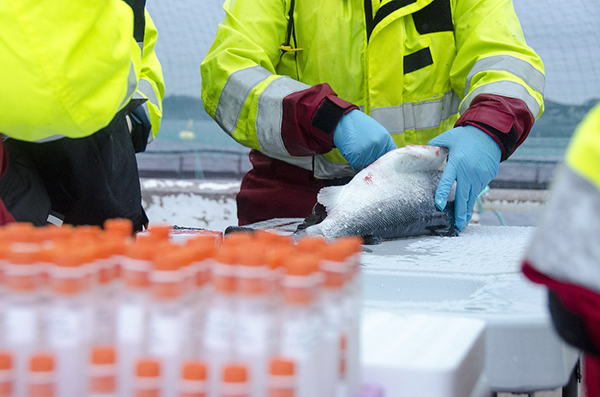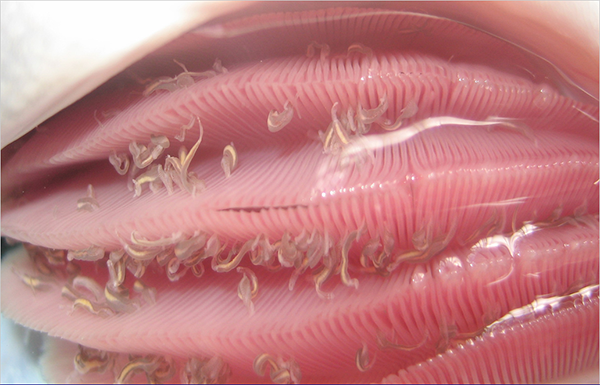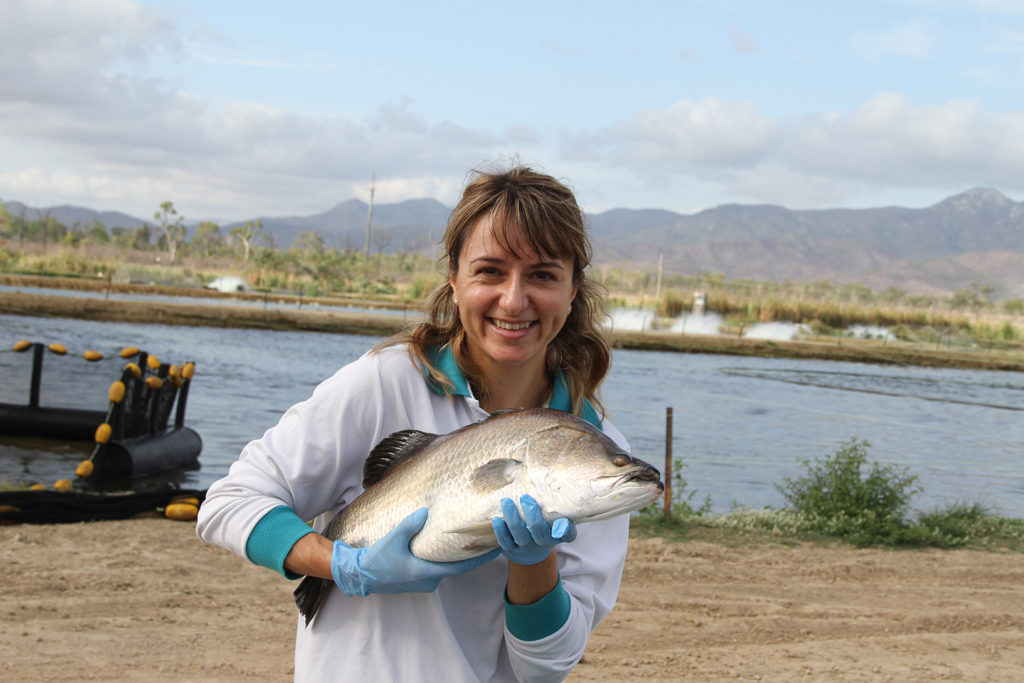Everything that lives inside the parasites can influence salmon health, study findings say

When salmon ingest parasites, the parasite may not be the only factor that determines the impact on the health of the fish, according to research findings from the NTNU University Museum in Norway. The parasites’ own microbiomes – everything that lives inside the parasites – sometimes also plays a role in the host’s health.
“We investigated the microbiome of the tapeworm Eubothrium and the effect that this microbiome has on the farmed salmon it infests,” said Dr. Jaelle C. Brealey, a postdoctoral fellow at NTNU’s Department of Natural History.
Understanding the relationship between parasites and the health of farmed fish is important for aquaculture. The researchers said the results were “startling”: The tapeworm has a microbiome that is distinct from the microbiome in the salmon. In biologists’ terms, this means that the tapeworm is likely a separate holobiont that lives inside another holobiont, namely the salmon and its microbiome.
This means that the different fungi, viruses and bacteria in the tapeworm could interact with the fungi, viruses and bacteria in the salmon. But how this might happen is currently unclear.
“We’re gradually beginning to understand the importance of the microbiome in the parasites,” said Dr. Brealey.
Understanding how the parasite’s microbiome affects the health of its host is one of the researchers’ priorities. But the study is in the “very early stages.”
“Overall, little microbiome research has been done on parasitic worms in general, and tapeworms in particular,” said Dr. Brealey. “This is despite the fact that they pose a major health problem, not only for fish, but also for other species like humans.”
Follow the Advocate on Twitter @GSA_Advocate
Now that you've reached the end of the article ...
… please consider supporting GSA’s mission to advance responsible seafood practices through education, advocacy and third-party assurances. The Advocate aims to document the evolution of responsible seafood practices and share the expansive knowledge of our vast network of contributors.
By becoming a Global Seafood Alliance member, you’re ensuring that all of the pre-competitive work we do through member benefits, resources and events can continue. Individual membership costs just $50 a year.
Not a GSA member? Join us.
Author
-
Responsible Seafood Advocate
[103,114,111,46,100,111,111,102,97,101,115,108,97,98,111,108,103,64,114,111,116,105,100,101]
Tagged With
Related Posts

Health & Welfare
No fluke: Cawthron Institute’s new web tool could help fish farmers tackle parasitic infection
Cawthron Institute has developed “BeNeZe” – a new web tool to help fish farmers manage parasitic infection in Kingfish and Amberjacks

Health & Welfare
Predicting parasite outbreaks in fish farms through environmental DNA
This article presents the results of a study using environmental DNA methodology for the early detection and quantification of various pathogens in farmed barramundi, where the technique showed to be a powerful and novel tool to predict fish mortalities.

Intelligence
Could floating cages revitalize an oyster farming industry decimated by the MSX parasite?
Study says floating cages could help revitalize the Cape Breton oyster farming industry destroyed by MSX parasite 20 years earlier.

Innovation & Investment
Canadian government aid to boost Cape Breton oyster farming industry
The Canadian government is providing $2 million to help revitalize the Cape Breton oyster farming industry destroyed by MSX parasite.



